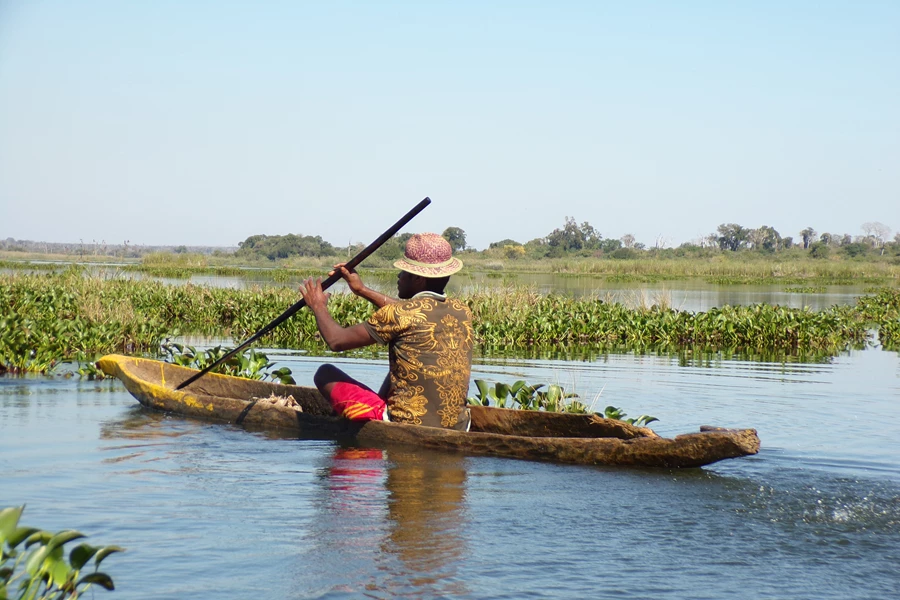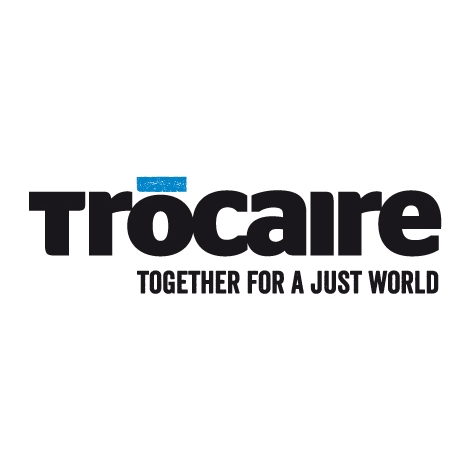Conservation Livelihoods
Jersey Overseas Aid’s Conservation Livelihoods programme aims to promote a mutually beneficial and sustainable relationship between conservation and human development.
Our Conservation Livelihoods projects enable governments and communities to alleviate poverty without detriment to their surrounding environments, and the protection and revitalisation of threatened ecosystems in a way that improves the wellbeing, and independence, of those who live in or near them.
The programmes focus on vulnerable ecosystems such as natural forests, special reserves and areas of important scientific interest, which are under threat from population growth, habitat destruction or changing weather patterns. They promote participatory and inclusive natural resource management and sustainable livelihoods, developed to ensure that communities are able to grow their incomes without placing increased unsustainable pressure on their environment.
Since 2018, through our Conservation Livelihoods projects, JOA has directly catalysed sustainable change for over 135,000 people living across a range of key ecosystems, including afro-alpine forest, riverine forest, and wetlands.

Current Conservation Livelihoods Grants
| Agency | Programme | Country | Value | Start | End |
|---|---|---|---|---|---|
| Renewable World | Renewable Energy Access for Livelihoods in Fragile Buffer Zones Phase 2 (REALIZE 2) | Nepal | £1,406,911 | 2025 | 2029 |
| Wateraid | ECOSAVE: A Sustainable Solution for Conserving the Bale Eco-region | Ethiopia | £1,499,000 | 2024 | 2027 |
| Spark Microgrants | Building Conservation Livelihoods and Climate Resiliency in Rural Communities in Rwanda and Malawi | Malawi, Rwanda | £1,500,000 | 2024 | 2027 |
| Inter Aide | Conserving ecosystems and family farming in the context of climate change | Ethiopia, Malawi, Sierra Leone | £1,400,000 | 2024 | 2028 |
| British Red Cross | Empowering Communities for Livelihoods and Biodiversity | Nepal | £1,500,000 | 2024 | 2028 |
| Goal | Enhanced resilience of rural communities through women-led biodiversity conservation, financial inclusion, and livelihood diversification. | Sierra Leone | £1,500,000 | 2024 | 2028 |
| People in Need UK | Enhancing Livelihood Opportunities through Ecosystem Protection in Barotse Floodplain of Western Zambia | Zambia | £1,400,000 | 2023 | 2026 |
| Scottish Catholic International Aid Fund (SCIAF) | Community-led planning and management for biodiversity protection and resilient communities in the catchment area of Lake Chilwa, Malawi | Malawi | £1,200,000 | 2023 | 2027 |
| Renewable World | Connecting communities and ecosystems in Shuklaphanta (CONNECT) | Nepal | £1,299,577 | 2023 | 2027 |
| Care International | Samrakshyan: Conservation-friendly livelihoods for women and vulnerable people in Mutani Khola Watershed in Nepal | Nepal | £800,000 | 2023 | 2027 |
| University of Huddersfield | Forest conservation through traceable supply chain development | Ethiopia | £993,000 | 2023 | 2027 |
| Durrell | VALIHA - Resources for the wellbeing of people and nature to achieve development | Madagascar | £2,136,343 | 2023 | 2028 |
| The Hunger Project UK | A Flourishing Future for Gewocha Forest | Ethiopia | £718,029 | 2023 | 2028 |
| Save the Children | Sustainable Livelihoods and Community-Led Conservation for the Protection of Mangrove Ecosystems in Sierra Leone | Sierra Leone | £1,000,000 | 2022 | 2025 |
| Plan International UK | CLIMB - Conservation Livelihoods in Malawi's Biospheres | Malawi | £1,200,000 | 2022 | 2026 |
| Royal Society for the Protection of Birds (RSPB) | Cocoa’s sweet spot: Maximising livelihood, biodiversity and carbon benefits | Sierra Leone | £1,180,449 | 2022 | 2026 |
| Tearfund | SU-CONSERVE: Scaling Up Conservation of Endangered Natural Resources for Sustainable Economic Returns and Value Empowerment | Malawi | £1,500,000 | 2021 | 2025 |

COUNTRY: Rwanda
PARTNER: Trocaire
DURATION: 2020-2024
Project in focus: Community led planning and management for biodiversity protection and resilient communities
The challenge
Rwanda's ecosystems face significant threats due to the widespread conversion of natural forests into agricultural lands, grazing areas, and other environmentally detrimental agricultural practices. The pressures of poverty and limited income opportunities drive many people to engage in illegal trade and exploitive farming to support their families. Nyungwe National Park (NNP) and its buffer zones are particularly affected, where intensified mining, logging, and monoculture farming have led to deforestation and a decline in local biodiversity.
What is the project doing?
Trocaire’s project addresses the crucial role of local communities in both using and conserving Nyungwe National Park. By empowering these communities to assess, plan, and manage their natural resources, the project aims to foster environmental and economic sustainability. Geospatial mapping aids in informed decision-making and developing effective restoration plans. The initiative also educates youth on local environmental conservation and provides vulnerable groups with access to a digital savings and lending model (digital VSLA) to enhance economic empowerment and reduce reliance on NNP resources.
Outcomes
The project has increased biodiversity awareness for 9,706 community members and provided 1,560 primary and secondary students with essential tools and knowledge for promoting environmental protection. Conservation Committees have been set up in 19 communities to map natural resources and create action plans for biodiversity restoration using community-led strategies. Additionally, 1,900 energy-efficient stoves have been distributed to households, significantly cutting the demand for firewood, and improving the security and health of households.
“I now get time to visit my neighbours and rest for a moment. Before I would be interrupted by having to add firewood and regularly check if the fire was still going”, she said “The stoves are economical in terms of firewood use; in one week I spend less than half of what I used to on firewood. Now one piece of wood is enough to cook a meal that I used to cook with three pieces.”
Sign up to our newsletter
Find out more about JOA, the work we do, forthcoming events and volunteering opportunities.


